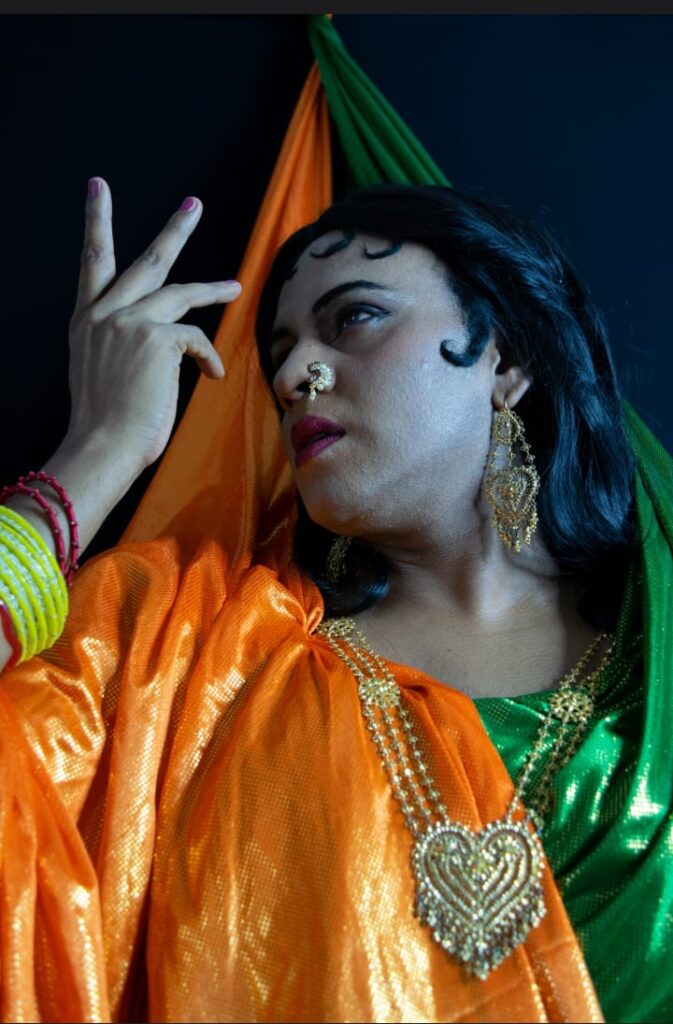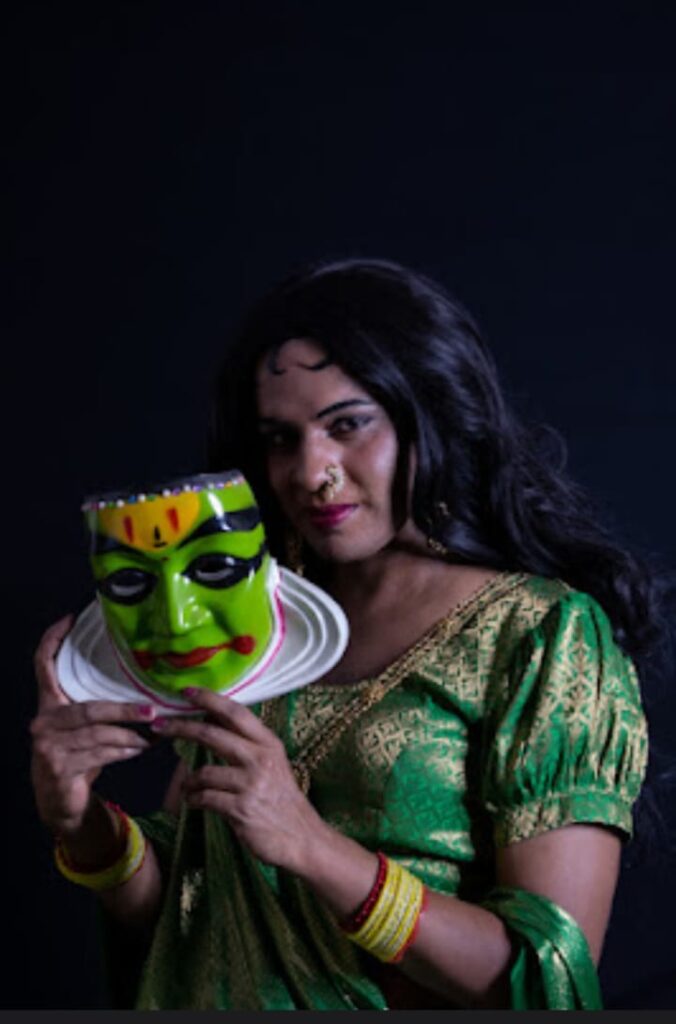Voicing Gender Fluidity
Maharashtra Sanskritik Sandhya at IIC
A review by Manohar Khushalani First Published in IIC Diary

Maharashtra Sanskritik Sandhya, is an annual feature at IIC. This year, they presented dramatized readings, Beyond Gender, on LGBTQ communities, from two plays: Satish Alekar’s ‘Begum Barve’ & Mahesh Dattani’s ‘Seven Steps Around the Fire’. It was brilliantly and imaginatively directed by Sohaila Kapur, who has a knack for choosing very powerful and relevant themes . Six actors read the two plays. The event began with a mesmerising dance by Kaustav Ghosh, doing the role of Begum Barve, the female impersonator. The performance was also interspersed with carefully curated soulful marathi music played in the background.
Begum Barve, the Marathi musical, features a quartet of characters: Begum Barve, an exploitative employer, Shyamrao, and two clerks, Jawdekar and Bawdekar, who, trapped in a life of penury and prejudice, use their caprices as an escape from it. In the selected excerpt for performance, Begum Barve and Jawdekar celebrate a fictitious pregnancy during a baby shower, helping Barve to fantasize that (s)he could conceive. The scene ends in his humiliation, Shyamrao strips Barve off his fantasy and robes and scorning his manhood. The script explores the intertwining of fantasies and reality through the creation of a female fantasy character, Nalawadebai, bridging the impersonator’s male identity and the clerk’s desire for a traditional family life. This complex narrative challenge’s conventional storytelling, weaving a tapestry of gendered social meanings and re-evaluating contemporary perceptions of womanhood.

Seven Steps Around the Fire, depicts the miserable plight of eunuchs who make a living performing at marriages and child births. A eunuch is murdered at her wedding. Her friend, Anarkali, is arrested without proof by the SP, Suresh Rao. His wife Uma, a journalist, who is also the daughter of the DCP, decides to catch the culprit through investigative reporting. The performance was just an excerpt where Uma is interviewing the imprisoned Anarkali.
Although the murderer is known, the police traps Anarkali to protect the actual criminal who is a powerful person. The subaltern hijaras are too scared to speak. Anarkali says, “They will kill me even if I tell the truth. If I don’t tell the truth, I will die in jail.” The dramatist shows how the murder of Kamla has terrified other hijaras that they cannot reveal the truth and cannot get justice for the dead soul. Anarkali says, “One hijra less in this world does not matter to your husband.”. In self-defense, Anarkali reminds Uma, that she treated the deceased Kamla as her sister. Uma realises the bond of love among the hijaras is even greater, because they are isolated from society.
The event was introduced by Suhas Borkar, Trustee IIC. It was concluded rather dramatically by Kaushal Kumar, a fine arts university professor with an intriguing body painting improvisation involving audience participation.
